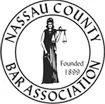Bankruptcy Newsletter
The Role of the Bankruptcy Judge
A United States bankruptcy judge has the ultimate discretion whether to grant requests for bankruptcy relief. In addition, the judge can issue any necessary orders to ensure compliance with the bankruptcy laws, and to ensure efficient administration of bankruptcy cases. Depending on what type of bankruptcy is involved, the debtor seeking relief may never be required to appear in front of the judge.
Common Situations
Hearings before a bankruptcy judge may be necessary in the following situations, regardless of what type bankruptcy case (chapter) is involved:
- Objections to your bankruptcy (by creditors and/or the bankruptcy trustee)
- Discovery issues (such as debtor failure to produce relevant documents)
- Violations of bankruptcy laws (for example, improper creditor harassment of debtors after a bankruptcy petition has been filed)
- Where issues relating to dischargeability of certain debts cannot be resolved without judicial intervention
- For approval of agreements to reaffirm certain debt obligations
- To convert the case to another chapter
Chapter 7 Cases
In Chapter 7 bankruptcies (liquidation), most debtors are not required to appear in front of the presiding judge. Rather, the bankruptcy trustee assigned to the individual case will generally oversee its administration and resolution.
Chapter 13 Cases
In Chapter 13 bankruptcy cases, the assigned judge typically approves the debtor’s plan at a formal hearing. This may be the only time the debtor must appear before the judge.
Chapter 11 Cases
Chapter 11 (reorganization) cases typically involve businesses, and consequently a fairly large number of assets and creditors.
Accordingly, the bankruptcy judge almost always plays an active role in administering Chapter 11 bankruptcy cases, supervising and presiding over hearings regarding matters similar to Chapter 7 and Chapter 13 filings and also hearings regarding:
- Plan confirmations
- Disclosure statements
- Employment of professionals such as accountants and appraisers
- Use of cash collateral
© 2025 NextClient.com, Inc. All rights reserved.



